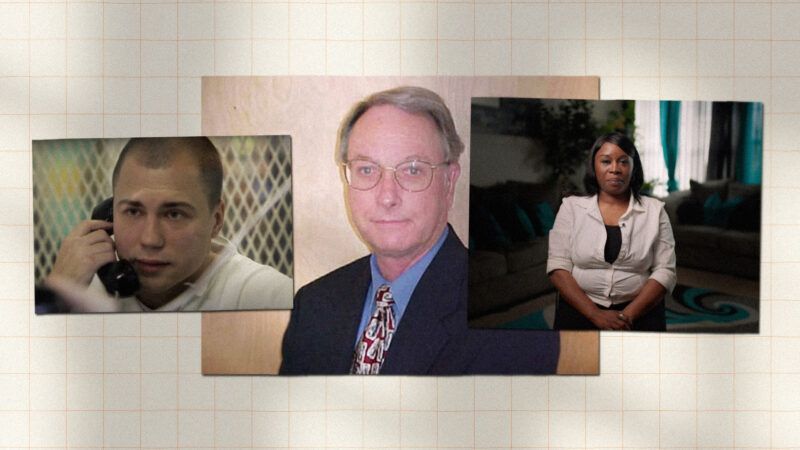This Prosecutor Secretly Worked for the Judges Overseeing His Cases. Will His Victims Be Able To Sue?
Ralph Petty likely violated the Constitution. In a rare move, a federal court signaled this week that lawsuits against him may not be dead on arrival.

There's an inverse relationship between the shock value in Erma Wilson's criminal justice experience and the remedy, or lack thereof, afforded to her for an alleged violation of her constitutional rights. Despite a federal judge calling her story "utterly bonkers," she has been barred from going before a jury and stating her civil case against a rogue ex-prosecutor.
In a rare turn, that may finally change. The U.S. Court of Appeals for the 5th Circuit this week agreed to rehear her petition—implying a majority of judges may be inclined to reverse the court's previous ruling, which shielded from liability a former assistant district attorney in Texas who allegedly helped prosecute Wilson while he covertly worked for the same judges overseeing his cases.
In 2001, the Midland County district attorney promoted Weldon "Ralph" Petty Jr. from law clerk to prosecutor. But instead of transitioning to his new role, he kept both, simultaneously prosecuting cases and assisting judges as their right-hand man. That means by day, Petty, like any prosecutor, pursued rulings vindicating the government. And then at night, like no prosecutor, he would draft the very rulings he'd sought.
That year, Wilson found herself in the same courthouse. Police arrested her after finding some crack cocaine on the ground near where she and some friends were standing. She vehemently denied it was hers, and law enforcement informed her she could go free if she told them whom it belonged to. She said she didn't know.
The government attempted to avoid a trial, offering Wilson several plea deals. She declined all of them, insisting on both her innocence and a trial by jury, the latter of which is vanishingly rare in the modern criminal justice system. She was convicted and sentenced to eight years of community supervision. But Wilson's punishment has subsisted to this day, in that her conviction precluded her from becoming a nurse, her dream since childhood, because Texas forbids people convicted of drug-related offenses from obtaining a nursing license.
Petty's dual-hat shenanigans lasted from 2001 to 2014, and again from 2017 to 2018. It didn't come to light until the following year when Midland County District Attorney Laura Nodolf reviewed his accounting records and was confronted with the fact that hundreds of cases may have been tainted by his conflict of interest. Fortunately for Petty, the timing of that discovery coincided with his retirement. He was ultimately disbarred in 2021—two years after he'd left his post.
It is an extremely difficult task to achieve any remedy when a prosecutor violates the Constitution, as the role is typically protected by absolute immunity. After Petty's misconduct came to light, Wilson tried anyway via a lawsuit that alleges Petty infringed on her Fourteenth Amendment rights by moonlighting for then-Judge John G. Hyde, who adjudicated her case. Hyde passed away in 2012.
But when Wilson sued under § 1983—the relevant civil rights statute—her claim died before a court could evaluate whether Petty was entitled to absolute immunity, thanks to yet another barrier placed before similarly situated alleged victims of government abuse. "A convicted party cannot seek § 1983 damages for unconstitutional conviction or imprisonment without first showing that the conviction or sentence has been reversed on appeal or otherwise declared invalid," wrote Judge Don Willett for the 5th Circuit in December. "The wrinkle here is that Petty's conflicted dual-hat arrangement came to light only after Wilson had served her whole sentence."
In other words, a technicality would prevent Wilson from asking a jury if she deserved damages. Willett wrote that he was bound by precedent and that only a Supreme Court ruling or an en banc decision—where all 5th Circuit judges convene to hear and reconsider a case—could countermand that. The 5th Circuit obliged.
Should they rule in Wilson's favor, she will then have to confront absolute immunity, which, true to its name, also usually dooms cases before they begin. This case may be different. The doctrine protects prosecutors from civil suits if their alleged misconduct was committed in the scope of their prosecutorial duties. But Petty technically committed his as a law clerk. Wilson's claim "is a stepping stone toward upending prosecutorial immunity," Alexa Gervasi, formerly an attorney at the Institute for Justice, told me in 2022. "What this case will do is show why absolute immunity in any respect is wrong. It creates incentives to do wrong and to violate the Constitution."
Midland County claims that Petty, despite working for Hyde, didn't interfere with Wilson's case. The same cannot be said for Clinton Young, who was sent to death row in 2003 for a murder he has long maintained he did not execute. At trial, one of Young's co-defendants, David Page, testified that Young, not Page, had murdered Doyle Douglas and Samuel Petrey. The kicker, however, is that Page's testimony came in exchange for a more lenient sentence—something Young's attorneys say was not properly disclosed.
Petty's dual arrangement amounted to "shocking" misconduct that "destroyed any semblance of a fair trial," wrote Senior District Judge Sid Harle in 2021, a queasy turn in any circumstance, but especially so when considering it nearly sent a man to his death.
"Rabid sports fans howl nonstop about blown calls and revel in accusing officials of losing their team the game," wrote Willett in that December decision. Indeed. And if you wouldn't want someone near your sports team, it stands to reason you wouldn't want them as your prosecutor or judge—much less as both.


Show Comments (16)